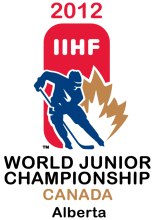Here’s one of the more remarkable bits of trivia about the 1987 Canada Cup finals which many people consider the finest three hockey games ever played. The Soviets won game one, 6-5 in overtime. Canada won game two, 6-5, in double overtime. And, Canada won game three, 6-5, on a late goal in the third period.
The amazing trivia? In each game Canada blew a 5-4 lead.
In the first two games, the Soviets scored with time almost expired. In game three, Canada led 5-4 after two periods but couldn’t hold the lead, requiring the heroics of a Gretzky-to-Lemieux play to win the championship.
Here’s another incredible bit of trivia. Canada has been in the gold medal game of the last TEN straight U20 tournaments. In six of those, blown leads played a huge role in the outcome of the game. In 2002, Canada had a 2-0 and 3-1 lead over Russia, only to lose, 5-4. In 2003, the team again played Russia and enjoyed a 2-1 lead heading into the third period—and lost again, 3-2. In 2004, Canada was in control against the U.S., winning 3-1 after two periods and looking dominant. Twenty minutes of hockey later, it had lost 4-3 and had to settle for silver for the third straight year because of blown leads.
In 2007, Canada jumped into an early 3-0 lead against Russia, played steadily, and coasted to a 4-2 win. The next year, Canada was leading Sweden 2-0 after the first period and the second period, blew the lead in the third, and won in overtime. Last year, the Americans blew a two-goal lead spectacularly thanks to two late goals from Jordan Eberle, but they regained their composure and won 6-5 in overtime.
In truth, though, no team at any IIHF event has ever had a three-goal lead in the third period of a gold-medal game and lost. Never. Not until last week. What’s equally incredible, in 35 years of U20 history, Canada has never surrendered five goals in the third period of any game, any time.
Consider some other memorable comebacks/blown leads. In the 1994 gold medal game of the Olympics, Canada led Sweden 2-1, but Tre Kronor tied the game with less than a minute and a half left in regulation time. Peter Forsberg gave his country gold thanks to his historic shootout goal, and it is that moment that overshadows the fact that Canada was exactly 87 ticks off the clock from Olympic gold.
Slovakia won its first and only World Championship gold in 2002 thanks to Peter Bondra’s incredible late goal, but this only masks the fact that the Slovaks carried a 3-1 lead into the final period. Russia rallied to tie, setting the stage for Bondra’s heroics.
Canada staged a rally of its own at the 2004 World Championship. Sweden built a 3-1 lead early in the second period, but Canada tied it up by the end of the middle period and scored two unanswered goals in the third tom win, 5-3. The score looks convincing on paper years later, but at the time the Swedes were devastated by their blown lead.
And in 2008 at the World Championship final game in Quebec City, Canada hosting the event for the first time in honour of the IIHF’s 100th anniversary, the hosts were beating Russia, 4-2, with 20 minutes to play. But coach Ken Hitchcock instituted a defensive policy for the third period, and the Russians rallied to tie in regulation and win on an Ilya Kovalchuk power-play goal in overtime.
And, of course, there is the most dramatic blown lead in the history of the Olympics which occurred within the last year. Canada was motoring along in Vancouver, leading the United States 2-1 as time wound down, when Zack Parise beat the struggling Roberto Luongo with just 25 seconds left on the clock. Does anyone ever refer to this game for its “blown lead”? No, but only because Sidney Crosby saved the day at 7:40 of overtime. If the Americans had won, the late Parise goal would have marked one of the greatest disasters in Canadian hockey history.
The moral of the story is simple. If you’re a Canadian fan disheartened by the huge blown lead and loss by the juniors last week, remember that your country has been in so many finals it’s bound to lose a few heart-breakers. And the lesson for other nations is that no lead is safe. Of course, the trite response is that a game is 60 minutes long, but look at the gold medal game in Buffalo. The Russians played well for only 20 minutes – it was just the right 20. And Canada dominated for 40 minutes – but the poor 20 minutes came at the wrong time.
Blown leads are like death and taxes – they happen. But Canada has recovered from many a blown lead in the past and will do so again in the future. But until then, sure, the Buffalo sting is real.
ANDREW PODNIEKS
|
 |
 |







